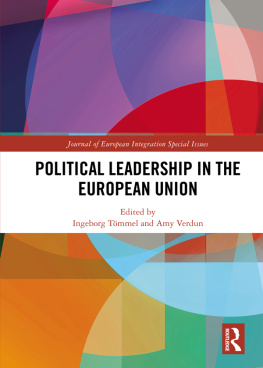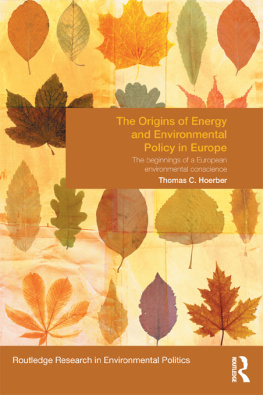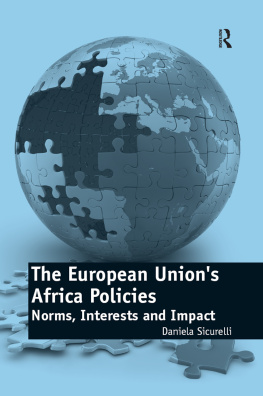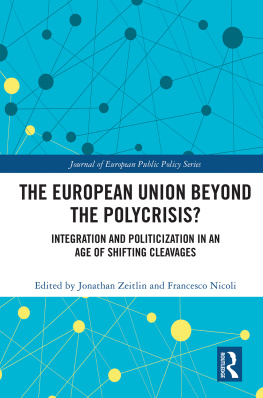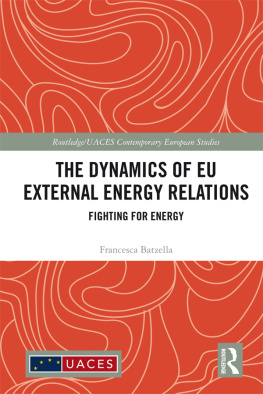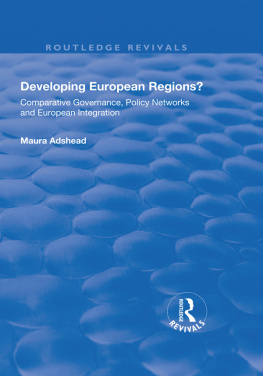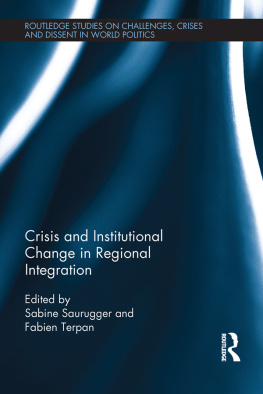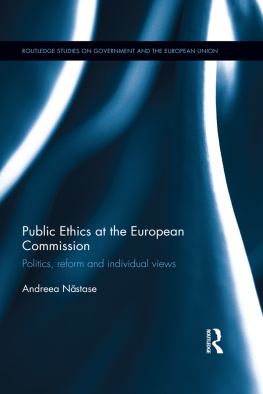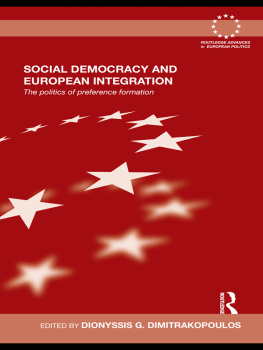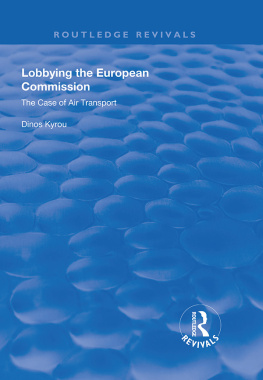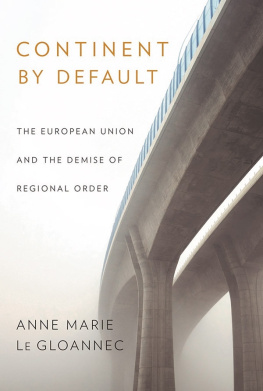
National and Regional Symbolic Boundaries in the European Commission
The process of European integration and the transfer of political authority from the national to the European level have led to the emergence of a field of EU policy making in Brussels, which attracts professionals and experts from all EU member states. This book contributes to research on the dynamics of social integration unfolding at the heart of this field. Based on in-depth interviews with officials working for the European Commission the EUs supranational organization the author explores the perception and negotiation of symbolic boundaries related to their diverse national and regional backgrounds. In line with their cosmopolitan attitudes and role-conception as European civil servants, Commission officials tend to de-emphasize national and regional divisions among them. Nevertheless, subtle symbolic boundaries remain in connection with their diverse organizational cultures, working language preferences, professional values and influence and career prospects. This nuanced account of patterns of social categorization and group-making in a European context will appeal to sociologists with interests in European integration and the emergence of social fields and groups beyond the nation state.
Daniel Drewski is a postdoctoral researcher in the Department of Sociology at the Freie Universitt Berlin, Germany.
Routledge Advances in Sociology
314 Understanding China through Big Data
Applications of Theory-oriented Quantitative Approaches
Yunsong Chen, Guangye He and Fei Yan
315 National and Regional Symbolic Boundaries in the European Commission
Towards an Ever-Closer Union?
Daniel Drewski
316 Anxiety in Middle-Class America
Sociology of Emotional Insecurity in Late Modernity
Valrie de Courville Nicol
317 Boredom and Academic Work
Mariusz Finkielsztein
318 The Emotions in the Classics of Sociology
A Study in Social Theory
Edited by Massimo Cerulo and Adrian Scribano
319 Emotions and Belonging in Forced Migration
Syrian Refugees and Asylum Seekers
Basem Mahmud
320 Languages and Social Cohesion
A Transdisciplinary Literature Review
Gabriela Meier and Simone Smala
For more information about this series, please visit: www.routledge.com/Routledge-Advances-in-Sociology/book-series/SE0511
First published 2022
by Routledge
2 Park Square, Milton Park, Abingdon, Oxon OX14 4RN
and by Routledge
605 Third Avenue, New York, NY 10158
Routledge is an imprint of the Taylor & Francis Group, an informa business
2022 Daniel Drewski
The right of Daniel Drewski to be identified as author of this work has been asserted by him in accordance with sections 77 and 78 of the Copyright, Designs and Patents Act 1988.
All rights reserved. No part of this book may be reprinted or reproduced or utilised in any form or by any electronic, mechanical, or other means, now known or hereafter invented, including photocopying and recording, or in any information storage or retrieval system, without permission in writing from the publishers.
Trademark notice: Product or corporate names may be trademarks or registered trademarks, and are used only for identification and explanation without intent to infringe.
British Library Cataloguing-in-Publication Data
A catalogue record for this book is available from the British Library
Library of Congress Cataloging-in-Publication Data
A catalog record has been requested for this book
ISBN: 978-0-367-62001-1 (hbk)
ISBN: 978-0-367-62003-5 (pbk)
ISBN: 978-1-003-10743-9 (ebk)
DOI: 10.4324/9781003107439
This book is based on my doctoral dissertation submitted at the Berlin Graduate School of Social Sciences (BGSS) at the Humboldt University Berlin in 2019. I would like to thank my supervisor, Jrgen Gerhards, and second referee, Steffen Mau, for all their support and their helpful suggestions and comments on the dissertation manuscript. This dissertation also benefitted greatly from the many discussions with my colleagues at the BGSS and the Department of Sociology at Freie Universitt Berlin. The fieldwork for this dissertation in Brussels was supported by a short-term doctoral grant of the German Academic Exchange Service (DAAD). I would also like to thank the EU Office of the Friedrich Ebert Foundation for supporting me during my stay in Brussels. Finally, my gratitude goes to all the respondents and informants for this study who have taken their time to answer my questions and for sharing their personal experiences and views with me.
| AD | Administrator |
| COREPER | Permanent Representatives Committee |
| DE | Germany |
| DG CLIMA | Directorate-General for Climate Action |
| DG COMP | Directorate-General for Competition |
| DG ECFIN | Directorate-General for Economic and Financial Affairs |
| DG | Directorate-General |
| ECSC | European Coal and Steel Community |
| EEC | European Economic Community |
| EL | Greece |
| ENA | cole Nationale dAdministration |
| EPSO | European Personnel Selection Office |
| ES | Spain |
| EU | European Union |
| EURATOM | European Atomic Energy Community |
| FR | France |
| GDP | Gross Domestic Product |
| HU | Hungary |
| IBSA | Institut Bruxellois de Statistique et dAnalyse |
| IT | Italy |
| NATO | North Atlantic Treaty Organization |
| NGO | Non-Governmental Organization |
| PhD | Doctor of Philosophy |
| PiS | Prawo i Sprawiedliwo (Law and Justice Party) |
| PL | Poland |
| RO | Romania |
| SE | Sweden |
| TFEU | Treaty on the Functioning of the European Union |
| UK | United Kingdom |
| UN | United Nations |
| US | United States of America |
DOI: 10.4324/9781003107439-1
1.1 Background and research question
The European Union (EU) is the most integrated regional bloc of countries around the world. What began in 1951 with the foundation of an organization of six European countries to create and regulate a common market for coal and steel, expanded since into an organization that experts are struggling to find a proper name for: an organization somewhere between a confederation and a federation of states. The process of European integration is characterized by two related dynamics, commonly referred to as deepening and widening. On the one hand, cooperation between the member states has deepened with the creation of a Single Market, the increasing transfer of political authority from the national to the European level and the emergence of a supranational legal order. On the other hand, the original community of six member states has enlarged in successive waves to 28 member states at its peak (though it recently contracted back to 27 due to the Brexit). It enlarged to Northern European countries that were initially reluctant to join, to Southern European countries that had emerged from authoritarian regimes, and most recently, to 12 countries, most of them located in Central and Eastern Europe, that had been separated from Western Europe by the Iron Curtain during the Cold War.


